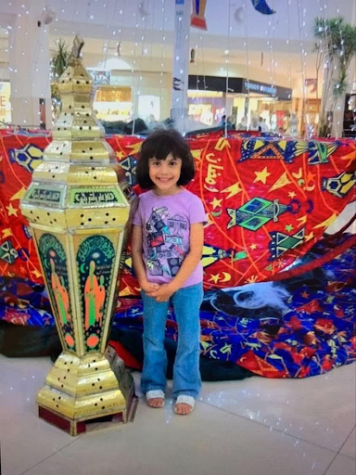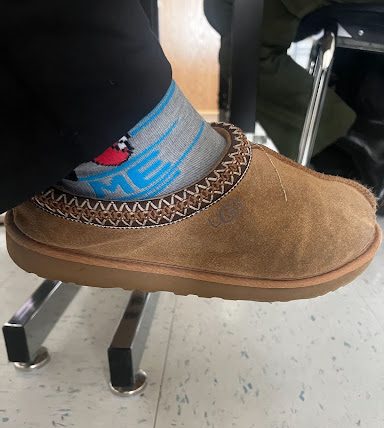Spartan Ramadan

Photo courtesy of Rowan Hagi
An Iftar spread from Hagi’s house. During Ramadan, Hagi along with her sister and mother prepare food that can be frozen and eaten throughout the month.
Muslim Spartans are celebrating the arrival of Ramadan. During the ninth month of the Islamic lunar calendar, Muslims fast from dawn to sunset. While the overall theme of the month is fasting, students celebrate the month in many different ways.
“I normally take fasting as not just a break from food and water, but an attempt to fast from negative emotions like anger and impatience, which can honestly be more difficult than regular fasting,” said junior Nour Mokbel.
Muslims are often encouraged to take the month of Ramadan to get closer to their faith. They often do this by reading the Quran (which many Muslims attempt to read entirely by the end of the month), attending prayers at the masjid, and refraining from worldly distractions such as listening to music.
“Whenever Ramadan is approaching, I feel happy and excited for the month,” said sophomore Rowan Hagi. “It creates an amazing atmosphere, and the Muslim community comes together all waiting for the same thing.”
During Ramadan, Muslims eat two meals called Suhoor and Iftar. Suhoor is eaten before the dawn prayer, Fajr, and is meant to sustain people for the day. Since it’s so early, many don’t eat a full meal but rather a quick, filling snack. Iftar is the meal eaten at the sunset prayer, Maghrib, and is when Muslims break their fast.
“I feel like every dinner is different because you meet your family, friends, and relatives all throughout Ramadan for Iftar, and it just makes the meal, after a long fasting day, more enjoyable,” said sophomore Beyza Kali. “It brings people together for a whole month.”
Ramadan’s ability to bring people together is a key part of what makes the month special.
“[My family] does group prayers for Isha on most days after we break our fast, and we usually end the day watching one of several 30-episode Egyptian shows that play during the month,” said Mokbel.

Many families enjoy taking the opportunity to do things together during Ramadan and have their own unique traditions aside from fasting.
“My family [and I] create a wall of daily quotes, stories, or chapters from the Quran or just related to Ramadan, and read it after every meal,” said Kali.
School and extracurriculars can make fasting more difficult. Excessive homework can get in the way of reading the Quran or going to the masjid, physical activities such as sports and PE can be too energy-draining, and sometimes just seeing everyone else eating can be difficult. After many years of fasting, however, it’s easier to get accustomed to these challenges throughout the month.
“Soccer season starts during Ramadan, and I get to break my fast in the middle of soccer games,” said senior Farouk Adimi, whose games are played in the evening. “People ask me how I play without eating and drinking all day, but I eat a lot of food that gives me energy the day before. I actually play better when I’m fasting.”
The essence of the month itself is what makes it enjoyable.
“Ramadan makes me feel pretty excited since it usually means my mother puts up lanterns all around the house to decorate, and we stock up on a lot of sweets and nougats for guests,” said Mokbel. “In general, it has a very peaceful feel to it, and with the hustle of my regular life, it allows me to slow down and be closer to my faith.”
After the month of Ramadan, Muslims celebrate Eid al-Fitr, a three-day celebration marking the end of fasting. This celebration is very food-centric, and it’s a time to wear nice clothes and receive gifts from family members. Many families only have big celebrations on the first day.
“My family always goes to the masjid to pray the Eid prayer, and we meet family and friends there. After prayer, we always go to IHOP and, for the first time in a month, have breakfast at a normal time,” said Hagi. “We then head home to open gifts, and everyone either comes to our house or someone else’s house.”
Some might see Eid as the light at the end of the tunnel after fasting, but in reality, the month of Ramadan is meant to be the most rewarding month of the year. The light is present throughout the entire month as Muslims form a deeper connection with their faith, reflect upon themselves, and come together with their community.





